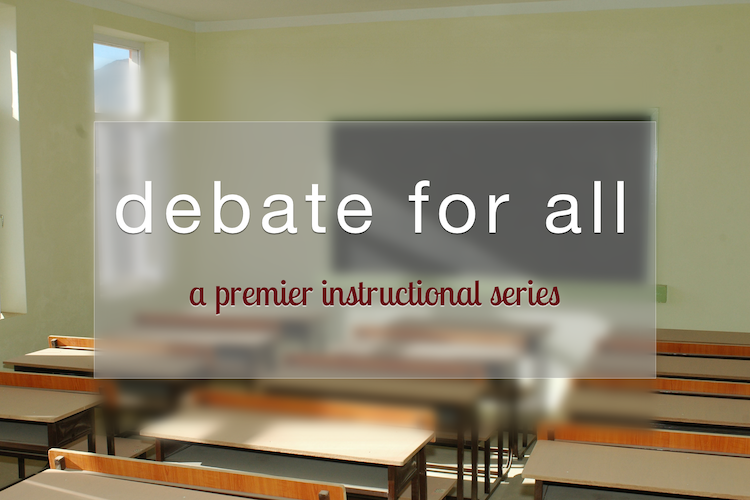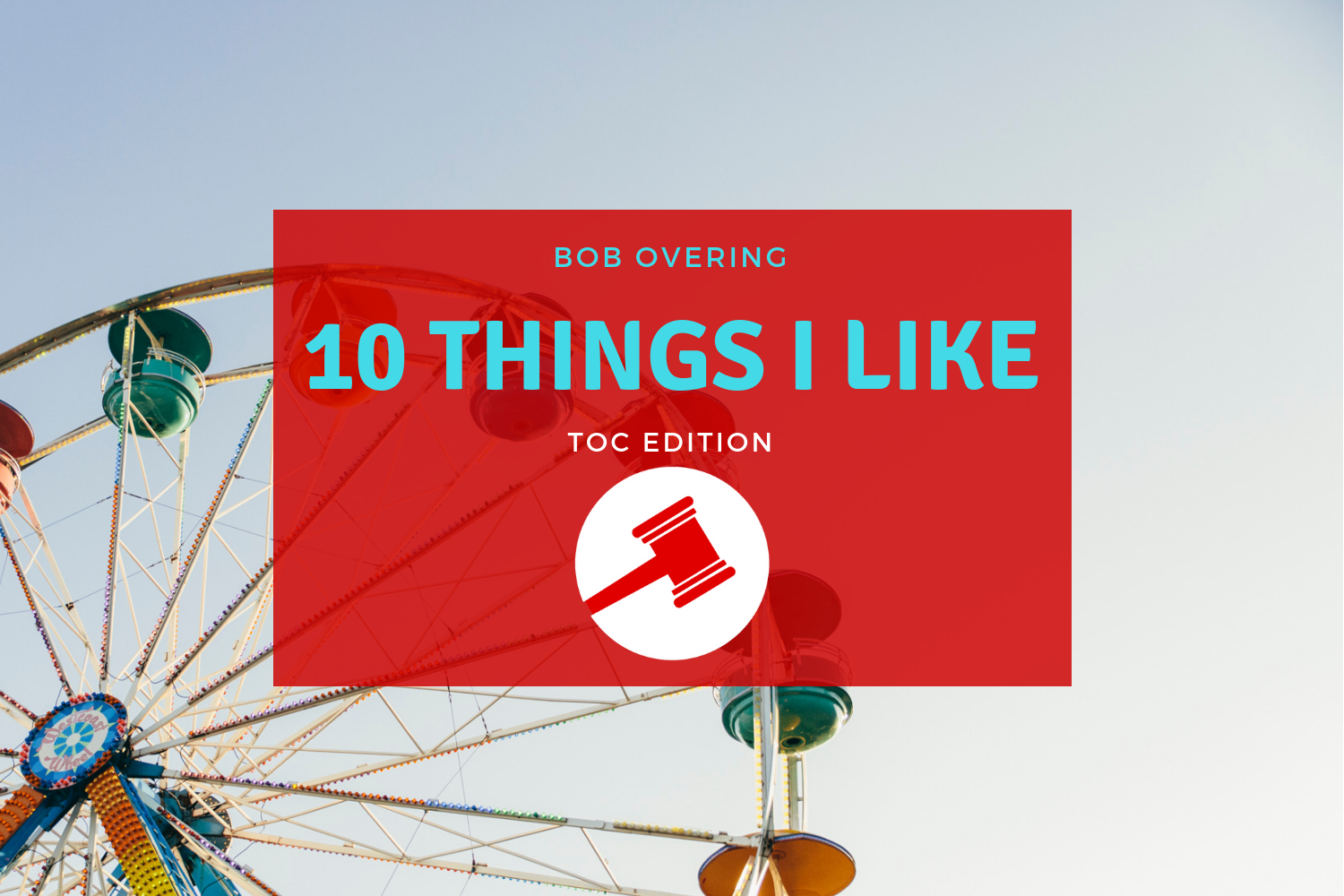Debate for All: Running an Efficient Practice

by Bob Overing
Introduction
Not everyone has the personnel and the coaching to have the “ideal” practice, but hopefully this framework can be useful even on a small scale of just two LDers in a room with three hours on their hands.
Following a more rigid schedule will help maximize the efficiency of your practice. Having heard stories from team captains at larger programs, I know they often have trouble organizing the team and getting everyone on track. An official schedule establishes the captain’s authority and a routine that benefits everyone on the team. Modify this schedule for your own use, and comment below on how you like to organize your debate work during the week!
0:00 – 0:30: Speaking Drills and Assignment Checking
Warm-up with spreading drills as everyone gets together and trickles in. Here are two resources:
1) Debate Central post on speaking drills
2) Spread Drills doc download
The first has explanations and tips for the most common spread drills. The goal of spread drills is speed, clarity, and mindlessness. Eventually, you want spreading at close to 400 WPM to be second nature!
The second has some sillier drills that focus on differentiating between different sounds. I find them useful, but ultimately, you want to master a particular rhythm and cadence for a debate case, not just any text.
As a team leader, you want everyone doing a battery of spread drills every day to stay fresh. They should be organized and monitored so that no one is slacking off during this period. On larger teams, the captain(s) may need to use this time to review assignments and assess the team’s progress.
0:30 – 1:30: Practice Debate 1
Everyone who can debate should debate at every practice. If possible, have a coach watch your debates. Do not make a habit of having varsity team members judge practice debates; while there is some pedagogical value in judging, it’s dwarfed by the value of debating.
Your practice rounds should have auxiliary goals besides winning. These goals differ depending on the context.
At the beginning of a topic, debates need to focus on new positions and practicing the core positions you plan on reading at the first couple tournaments. After each debate early in the topic, catalogue the responses to your position that you’ll need to block out for homework. Really make an effort to learn the topic well – don’t just make every debate a theory or framework debate!
In the middle of the topic, debates can be geared a little less toward learning the topic and more on prepping for what you know your opponents are saying. Now, you have a full wiki of arguments and some tournament experience. One practice strategy that takes some effort but can be well worth it is to simulate debating a particular school or opponent you know will be at your next tournament. Either cut a similar case to theirs or at least have a flow that you can debate off of. Simulating this debate will put you in a much better position when you have it at a tournament, and defending your opponents’ arguments will help you learn the ins and outs of them. Lastly, recreating rounds you’ve already had can be a way to make for a more immersive, strategy-focused “redo” drill.
Toward the end of the topic or after you’ve debated your last tournament on a topic, debates should aim at skill development and expanding one’s argumentative wheelhouse. If you want to get better at kritiks, now is the time because you’re not constrained by prepping for a specific topic or opponent. Still debate on the last topic even if there are no tournaments left because you’re most advanced and prepared on your most recent topic. You might also want to focus on the types of arguments you suspect you’ll run on the upcoming topic if it’s not out yet. Finally, using dead time when you’re not prepping for a new topic to try off-the-wall, creative strategies that you may or may not deploy at a tournament. This kind of tinkering might produce some really good ideas, or it might be a complete flop! But it keeps you and your opponent on your toes and prepares you for wacky things your opponents might do.
Other tips for practice debates:
- If there are an odd number of debaters, the odd person out can do drills such as rebuttal redos from previous debates or watch a debate through the NC, then give a 1AR separately
- Keep your flows! You might use them for rebuttal redos
- Start on time, end on time
- Take practice debates seriously. It’s easy to goof around in a less formal environment without a judge, but don’t. Andres Gannon, a hugely successful NDT debater who coached USC while I was on the team, once said “Tournaments are won Wednesday night in the squadroom, not Monday night in the ballroom.” As a senior in high school, I had over 100 practice debates with my teammates, and it paid off.
1:30 – 2:30: Practice Debate 2
The second practice debate should follow the same general guidelines as the first, but there are a few differences.
First, since everyone has already debated, not everyone needs to have a second practice debate at each practice. If you want to prepare the top two debaters on the team for an upcoming bid tournament, then have them debate and have the rest of the team watch, do drills based on the round, or do drills in other rooms.
Second, this practice debate can be much more focused than the first. While the first might have had some auxiliary goals such as “debate better on theory,” in the second practice debate, you can make a point to initiate theory even if it’s not really merited simply for the practice. A good idea is to have one free-for-all, win-at-all-costs (not literally, but you get the idea) debate and a second pointed, educational debate aimed at one skill.
2:30 – 3:00: Analysis, Assignments, and Wrap-Up
Use the last thirty minutes of practice to assess what was accomplished that day and what is yet to be accomplished. Point out what went well and should be modeled in future debates. Then point out areas of improvement. These should be general trends, not specifics for individual debates, because the hour allotted for the debate should include time for commentary.
Assignments should be doled out based on what could be improved in practice debates and what needs to be done for upcoming tournaments. For instance, if you debated poorly against a particular CP, your assignment should be to redo the 1AR or to create a block to that CP.
On larger teams, senior debaters and the captain(s) should discuss the assignments together and coordinate. Keep in mind what’s really doable based on the time period. If there’s another practice tomorrow, assign a small block or one rebuttal redo. But if there isn’t practice for another week, debaters have time to write a new case. Be sensitive to everyone’s schoolwork and schedule and adjust accordingly.
That’s it! After an efficient three-hour practice, you can go home and have dinner!
Other Tips
- Have debaters do spread drills on their own. If they’re diligent, you now have an extra thirty minutes at the beginning of practice! Consider using it on guided research for younger debaters, rebuttal redos, strategy discussions and brainstorming about cases and blocks. Paras Kumar just published a wonderful drill resource, debatedrills.com. If you can’t have practice debates for whatever reason, check out his videos and do the drills with teammates to get feedback.
- If you have multiple practices a week, maybe use one day for practice debates and another for drills and discussions based on the practice debates! Just make sure to have a routine that everyone knows in advance and can prepare for.
- Try not to use too much time researching or case-writing during practice. These activities can be done at home or at the library – no need to use group practice time!
- Coordinate and prepare for practice. You don’t want to spend too much time thinking about what you’re going to run in Practice Debate #2. Don’t delay the debates cutting just “one more card.” Being ready to go is a sign of respect for your teammates and the practice schedule.
- Compliment each other! Note improvements and hard work. Your teammates are your co-workers, in a sense, but they can also be some of your best friends. So be nice and have fun!
Bob Overing | Director
Bob is a director of Premier, coach for Loyola in Los Angeles, and debater for the USC Trojan Debate Squad. As a senior in high school, he was ranked #1, earned 11 bids and took 2nd at TOC. In college, he cleared at CEDA and qualified to the NDT. His students have earned 60 career bids, reached TOC finals, and won many championships.





2 Comments
Fantastic Article!
Thanks Prince — I appreciate it!